Made You Look!
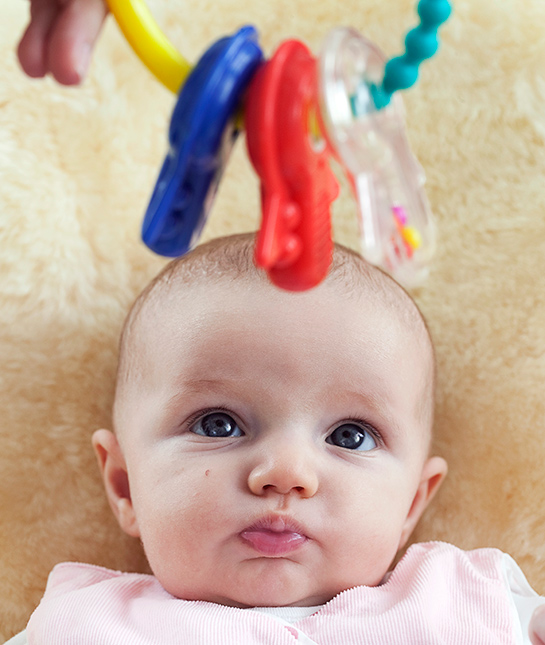
Developmental Stage: 0-3 months
Did you know that at birth, the world to most babies looks fuzzy and gray? Newborn vision takes time—and practice—to develop. A fun game to help your baby reach his first visual milestones is also a very easy one: Hold a brightly colored small object, such as baby rattle or squeaky toy, about a foot over your baby’s face. Gently shake it to get his attention, then slowly move the toy from side to side and up and down. See how your curious little one tracks the object? Now slowly lift the object higher and lower to his face so he can see it moving from near to far. Watch your baby’s eyes open wide in wonder as the object comes closer. This is what learning looks like!
Diaper Change Game
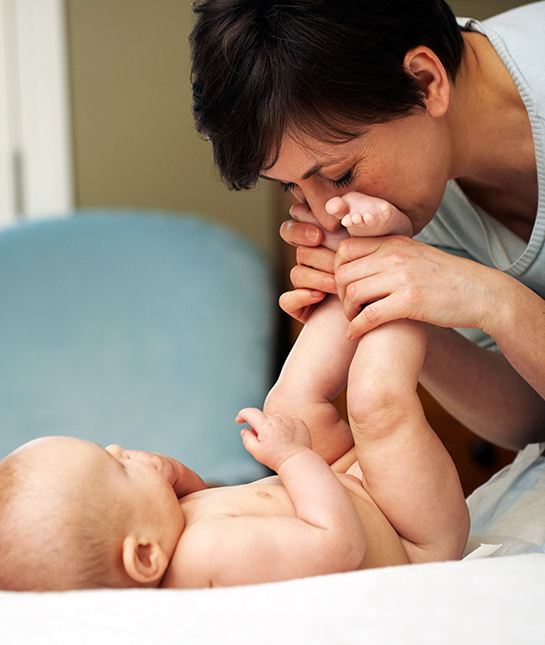
Developmental Stage: 0-6 months
Turn changing time into play time! Stimulate your baby’s language development and growing sense of self by pointing out his body parts as you get him dressed. Say, “I love your nose, nose, nose, nose,” then kiss your baby on the nose. Say, “I love your tummy, tummy, tummy,” then kiss your baby’s tummy. Name other parts of his body—head, eyes, hands—and kiss them, too! Don’t be surprised if this game elicits your little one’s first giggles and squeals of baby babble.
Roll, Reach and Grab!
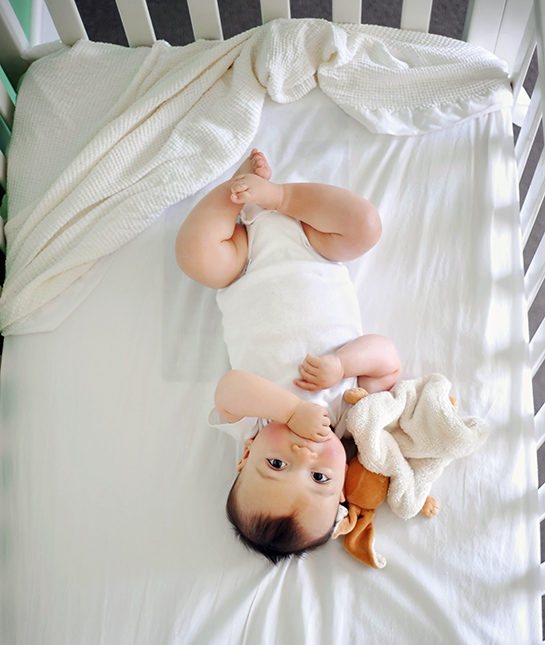
Developmental Stage: 0-6 months
Your baby’s first movements are involuntary, which is why rolling over—a voluntary movement that requires quite a bit of coordination and muscle strength—is considered such an important milestone. To help your baby practice rolling, sit behind her while she is lying on her back and hold a squeaky toy over her head. Once you have her attention, move the toy slowly to one side, encouraging her get it by rolling over. Practice makes perfect, so whether or not she successfully rolls and reaches for the toy (reaching/grabbing is another emerging skill), offer lots of verbal praise and the reward of placing the toy in her hand.
Bubble Trouble
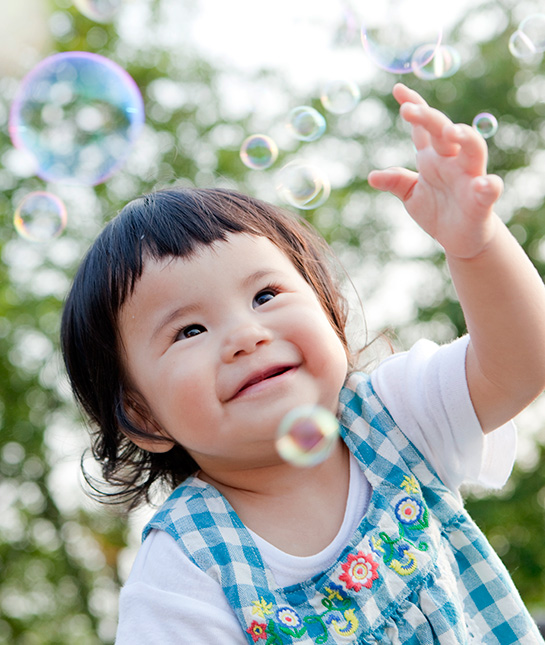
Developmental Stage: 6-12 months
Once your baby is sitting up, give her a workout in visual tracking and hand-eye coordination by going outside and blowing bubbles. All that’s required on your end: Take a deep breath and keep the bubbles coming. Your baby will watch, reach out and—if she’s lucky—grab some bubbles, only to see them mysteriously disappear in her hands. Consider it frustrating fun. Isn’t that the best way to learn something new?
Peekaboo Times Two
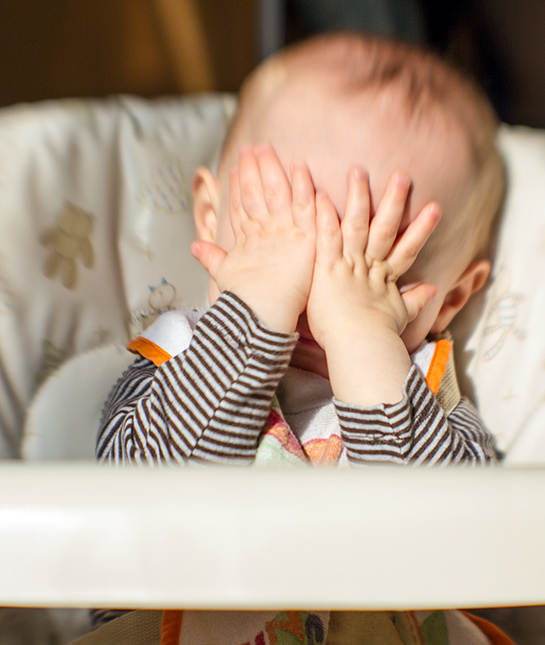
Developmental Stage: 6-9 months
Peekaboo teaches babies the concept of object permanence (i.e., that objects remain when covered up) with lots of giggles and belly laughs. Want to step the game up a notch? For a lesson in object permanence and self-concept, add a mirror. Sit on the floor with your baby in front of her activity mirror. Show your baby her face in the mirror, then cover it with a towel or burp cloth. Ask out loud, “Where’s my baby?”, then lift the cloth and say, “There she is!” Do this again, and see if she starts batting at the cloth or takes it off all by herself. The prize? That great big smile you see in her reflection.
What Goes Up ...
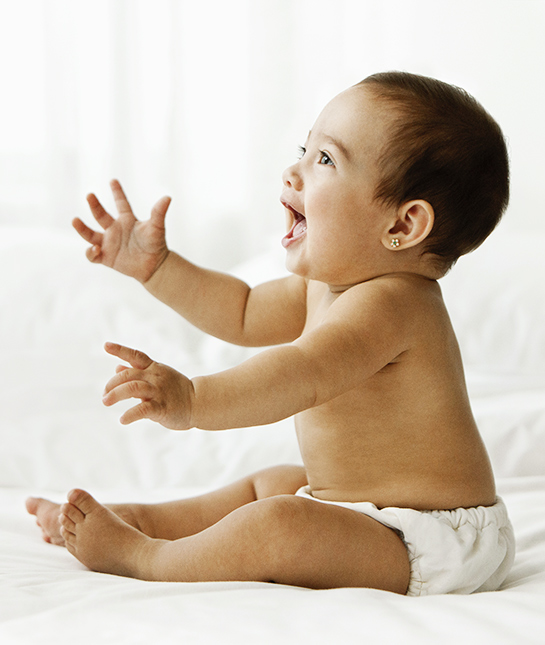
Developmental Stage: 6-12
Must come down! Gather together some silky or gauzy scarves and throw them up in the air one by one. As each starts to fall down, ask your baby, “Can you catch it?” Watch as your baby hones his hand-eye coordination and gross and fine motor skills in his attempts to nab a scarf. The secret to this game? Find the floatiest material you can to give baby enough time to get in position.
Busy Hands
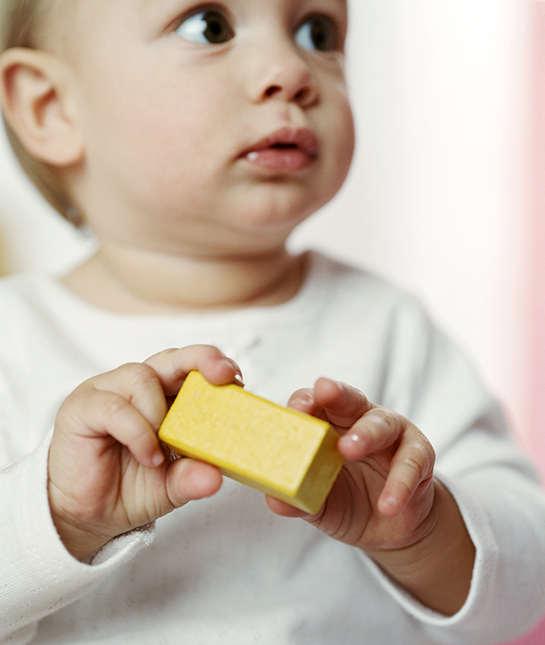
Developmental Stage: 6-9 months
Between the ages of 6 and 9 months, most babies go from batting and grabbing at items to more coordinated handling and grasping of objects. To help your baby practice his skills, the next time he is sitting in his high chair, place two blocks on the tray. Draw his attention to them and encourage him to pick them up (or place them in his hands.) Once he is holding the blocks, place a third block on the tray and ask him to pick that one up. You just might be rewarded with a look of true concentration as your baby contemplates how to accomplish this task. Releasing one block (the skill of “hand release”) before picking up the third is the goal.
Memory
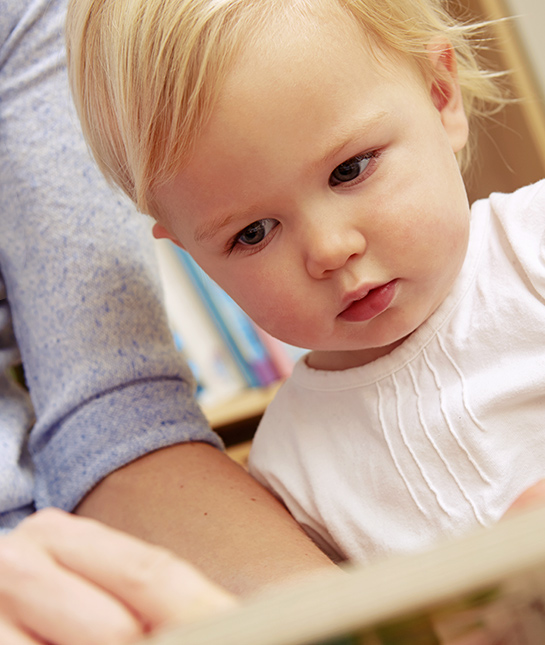
Developmental Stage: 9-12 months
A big part of cognitive and language development relies on the ability to remember. Brush up your baby’s skills by sitting on the floor together with two or three large pictures/photos spread out around you. (Tip: Make sure the pictures are of a familiar person or object.) One by one, turn each picture away and encourage her to find it again by asking, “Where is the picture of [insert name]?” What do you need to remember when playing this game? Always reward your baby with a hug when she tries—match or no match!
Baby's First Puzzle
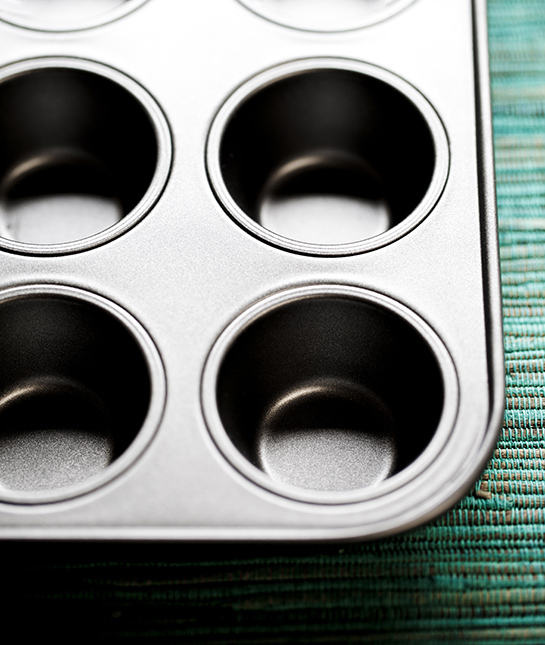
Developmental Stage: 9-12 months
Fine motor skills, cognitive development, hand-eye coordination … this baby-friendly puzzle game has it all! To play, place a clean muffin pan on the floor and next to it place an assortment of small toys. Show your baby how to pick up an object and place it in the cup. Now it’s his turn! Can he fill up the muffin pan? Once your baby gets the hang of completing the puzzle, you can add different rules, like only put in toys that are blue, or take turns.
Pour Me Another
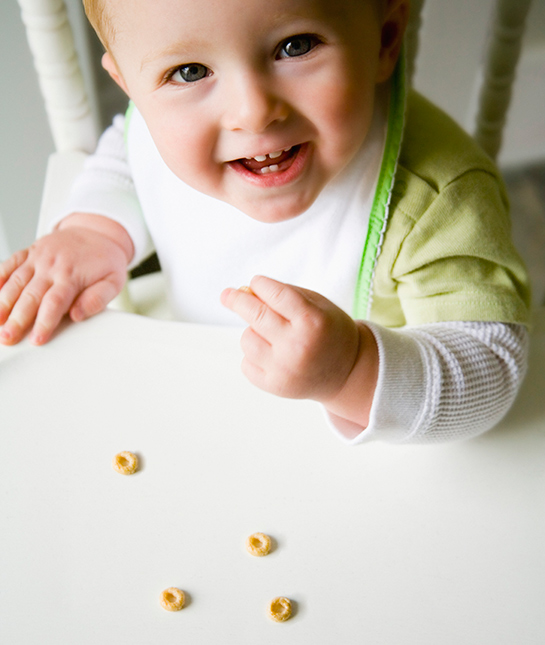
Developmental Stage: 9-12 months
Encourage development of your baby’s motor skills and hand-eye coordination with a fun game that also comes with the built-in bonus of being a snack! With your baby seated in his highchair, place one small paper cup filled about halfway with Cheerios and one empty paper cup on his tray. Show your baby how to pour the cereal from one cup to another, and then ask him to give it a try. The sound of the cereal as it pours is exciting, isn’t it?! Once your baby has poured back and forth a few times, scoop up the cereal that’s fallen on his tray. Voila! It’s time for a snack.




